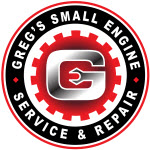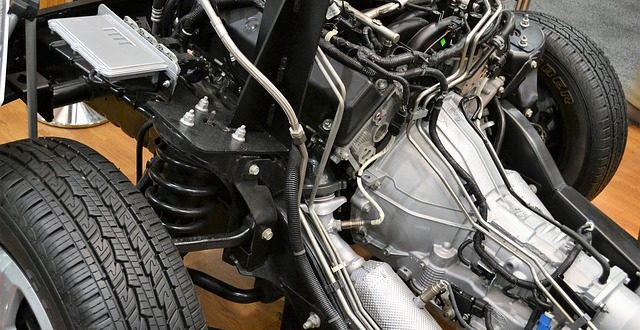Homeowners use different kinds of tools and equipment inside their homes. It helps them accomplish household chores such as cleaning the lawn and the yard. Some use these tools with small engines to keep their houses in top condition. However, people can have problems with their equipment.
What is small engine equipment?
When people say small engine equipment, they are referring to a wide range of small-displacement engines that uses low-powered combustion. This type of engine powers lawn mowers, generators, leaf blowers, and many more.
What are the common problems with small engine equipment?
Just like other equipment, these need regular checking and proper \ maintenance. As the weather changes, chances are the equipment will be impacted. . If the equipment is stored in a cabin during winter, it could damage the equipment or impact its performance..
Greg’s Small Engine has identified the top five common problems that homeowners encounter with their equipment.
Fuel
Most engines need fuel in order to work. However, fuels also cause harm to engines. When people choose the wrong fuel for the engine, it kills it (even its warranty). How does fuel cause problems to small engines?
First, owners use dirty fuel. Some may use refillable gas cans and have little bits floating around. Owners neglect these tiny bits and continue using the fuel. These tiny bits goes into the carburetor and clogs it. To resolve this, you can use a strainer or a coffee filter to remove the tiny bits floating around. After, you can use this fuel for your equipment.
Another problem with fuel, people stock up and it ages. In turn, using old fuel damages the engine and the equipment in general. Greg’s Small Engine suggest that you use a fuel stabilizer for old fuels or find an ethanol free fuel.
Carburetor
Most of the common problems with small engines point to fuels. However, if the carburetor fails to mix the fuel and air properly, engines malfunction. If a carburetor becomes dirty, it clogs easily which keeps it from functioning well. Refrain from cleaning the carburetor by yourself especially if you’re unfamiliar with it. Ask a technician to check it and learn how to clean and adjust a two-cycle carburetor or four-cycle carburetor.
Air Filter
People feed engines with fuel and carburetors digest itproperly. However, if the engines fail to breathe, engines slowly break down and fail. Air filters collect dust and dirt that protect the engine. When these filters gather so much dirt, it prevents the engine from getting air and may overheat.
What you can do?
- Let the machine rest.
- Check the filter for dirt.
- Clean it thoroughly.
- Air dry or blow it off.
- If that takes up your time, you can just put it in the dishwasher.
If cleaning the air filter did not show improvement in the engine, then replace it with a new one.
Rope
Ropes play a vital part in small engines, especially among generators. Sometimes, people pull it hard and it breaks. To prevent ropes from breaking or wearing out easily, just pull it less hard. Stock up on reserves also just like starter ropes.
Spark Plug
Spark plugs start the magic among engines. In order to create the spark among the engines, it needs fuel, oxygen, and a spark to start the combustion that drives the piston. The combination of these elements keeps the engine running. However, a spark plug encounters problems from carbon build-up. This hinders its ability to start the engine.
What to do?
- Clean the spark plug with an emery board.
- Check the gap in the spark plug.
- Replace the spark plug.
Other common problems of a small engine
Owners need to check these parts to prevent breakdown from their equipment.
Recoil Starter
Most of the time, when people grab the handle, they think it starts immediately. However, when a recoil starter doesn’t move, it could mean it’s broken. Other times, people grab the handle and it breaks upon contact.
Remember that the rope bone and handle bone are connected. The rope bone connects to the recoil starter bone. But if the recoil starter bone is broken, the engine does not work.
To solve this problem, you may either repair the recoil starter or buy a new one.
Valves
Valves form a vital part of the engine just like the spark plug and the ropes. It bends, burns, and corrodes. When valves break, this results in issues such as:
- Power reduction
- Poor fuel efficiency
- Too much vibration
- Heavy emissions
- Backfiring
- Power loss
- And misfires or sputter
Most solutions involve consulting a professional to check the cause of the problem. Avoid repairing it on your own as it may aggravate the damage .
Gaskets
Gaskets lessen the damage, especially on mounting surfaces. It helps seal gaps to prevent further damage. If the engine malfunctions, owners need to check the gaps especially if cleaning gets interrupted midway.
To repair a gasket, prior knowledge and experience in fixing engines help and speeds up the process. Bad gaskets cannot be fixed so it’s best to replace them with a new one. Maintenance helps especially if you thoroughly clean the dirt and install it properly.
Before installing the new one, remove the old gasket and avoid bruising the mounting surface. Check the new gasket and make sure it’s in top shape. Refrain from scraping off the old gasket with knives or even a stick. Use proper tools such as a gasket scraper for removal. Otherwise, call for professional help.
Knowing the most common problems among small engines help people avoid these and prepare ahead of time. This gives them time to prepare the necessary tools for repair or even allocate enough resources to buy new parts. Greg’s Small Engine helps homeowners learn and prepare for these problems.






















